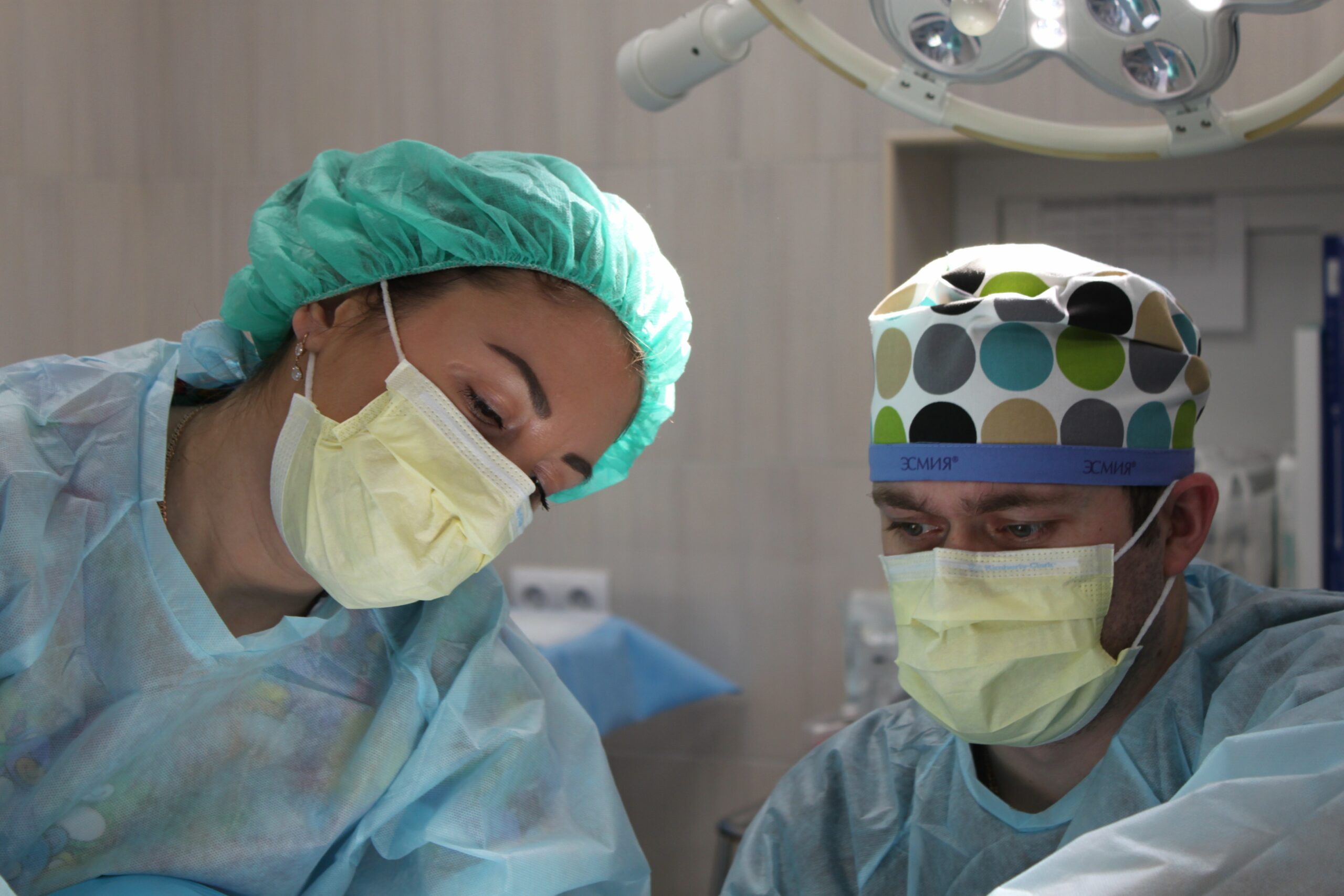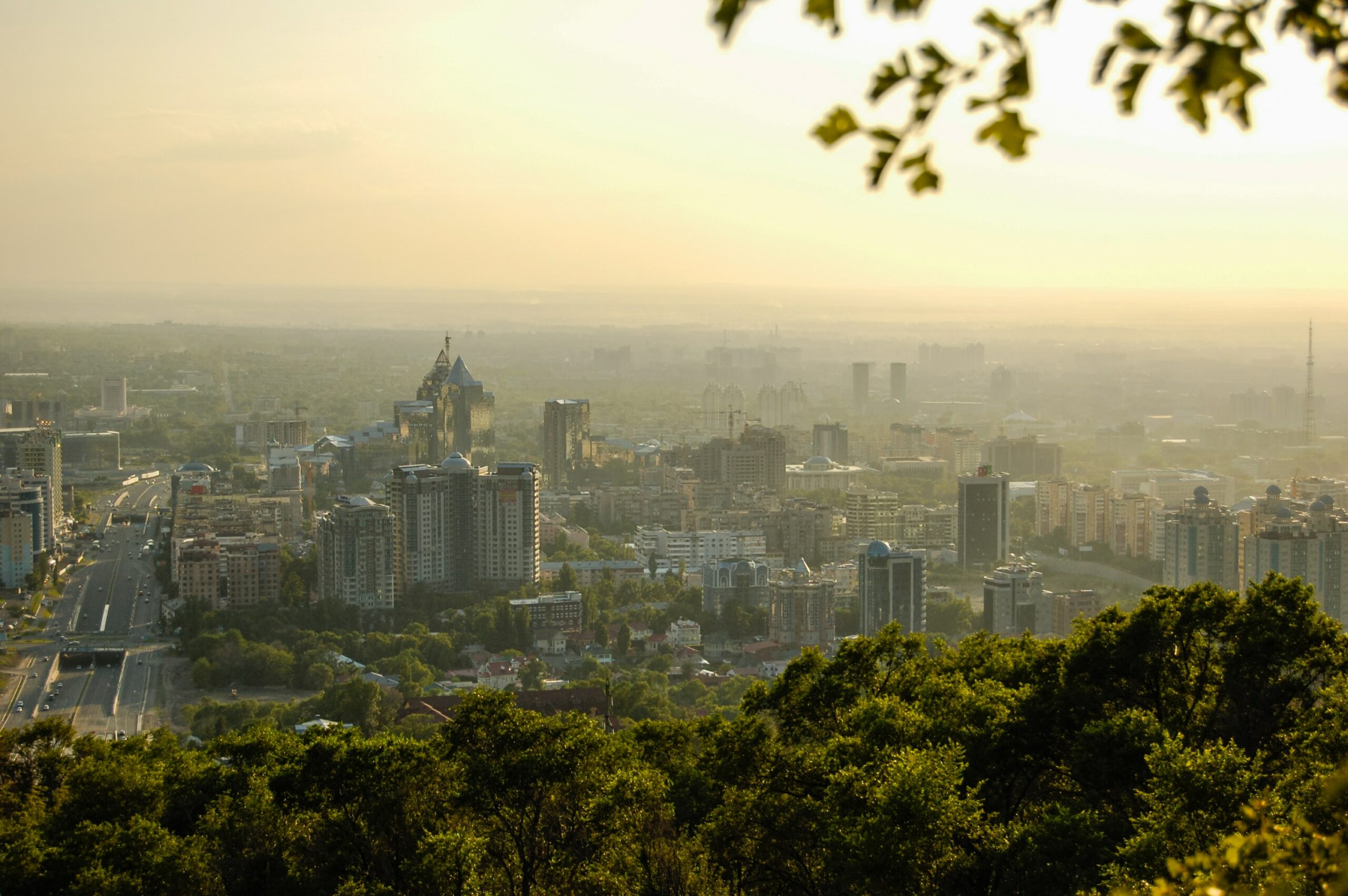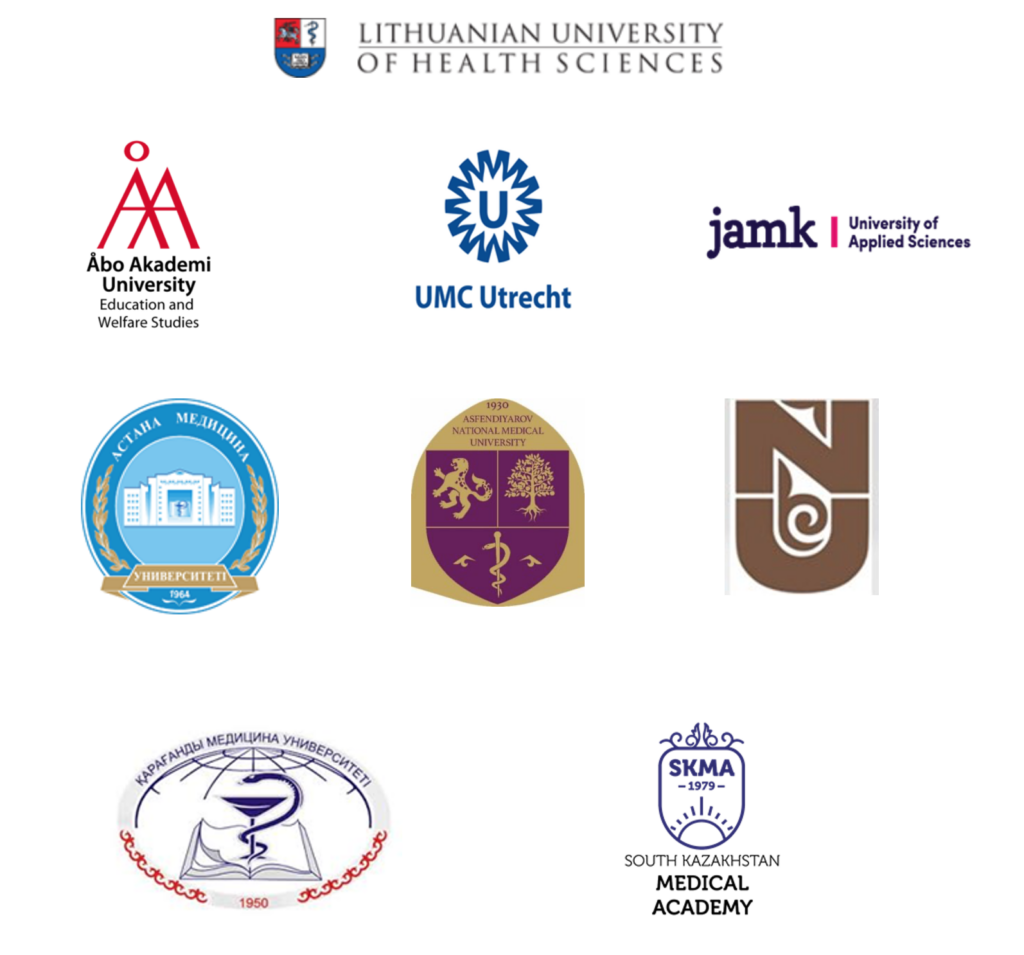About the project
2020-11-15 – 2023-11-14
Lithuanian University of Health Sciences (LSMU)
European Education and Culture Executive Agency (EACEA)
Erasmus+ Higher Education – International Capacity Building
996 764,- Eur
Astana Medical University (AMU), Kazakhstan
Abo Akademi University (ABO), Finland
JAMK University of Applied Science (JAMK), Finland
Kazakh National Medical University (KNMU), Kazakhstan
Karaganda Medical University (KMU), Kazakhstan
Nazarbayev University School of Medicine (NUSOM), Kazakhstan
Ministry of Healthcare (MOH), Kazakhstan
Ministry of Education and Science (MOEDS), Kazakhstan
University Medical Centre Utrecht (UMCU), Netherlands
South Kazakhstan Medical Academy (SKMA), Kazakhstan






